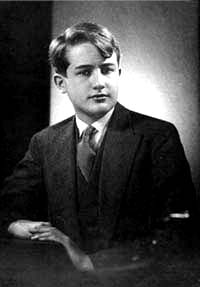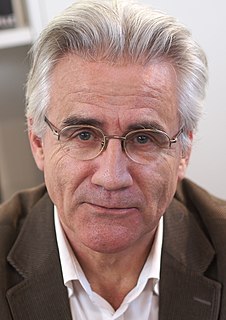A Quote by Will Durant
The soul of a civilization is its religion, and it dies with its faith.
Quote Topics
Related Quotes
The fact the enemies of God must face is that modern civilization has conquered the world, but in doing so has lost its soul. And in losing its soul it will lose the very world it gained. Even our own so-called Liberal culture in these United States which has tried to avoid complete secularization by leaving little zones of individual freedom is in danger of forgetting that these zones were preserved only because religion was in their soul. And as religion fades so will freedom, for only where the spirit of God is, is there liberty.
To a child who dies, and to the parents of this child, will you speak, if religion consoles them, in praise of atheism? That one does not mistake: that, to my mind, does not prove anything against atheism and much against religion. "The heart of a heartless world, said Marx, the soul of soulless conditions." It is misery that makes religion, and it is why this one is miserable. Who would prohibit opium to a dying man? And what are we, out of oblivion or entertainment, anything else but dying?
At last, in the gray dawn of Civilization the fire in the Soul dies down. The dwindling powers rise to one more, half-successful, effort of creation, and produce the Classicism that is common to all dying Cultures. The soul thinks once again, and in Romanticism looks back piteously to its childhood; then finally, weary, reluctant, cold, it loses its desire to be, and, as in Imperial Rome, wishes itself out of the overlong daylight and back in the darkness of protomysticism in the womb of the mother in the grave.
A faith in culture is as bad as a faith in religion; both expressions imply a turning away from those very things which culture and religion are about. Culture as a collective name for certain very valuable activities is a permissible word; but culture hypostatized, set up on its own, made into a faith, a cause, a banner, a platform, is unendurable. For none of the activities in question cares a straw for that faith or cause. It is like a return to early Semitic religion where names themselves were regarded as powers.
Freedom is a need of the soul, and nothing else. It is in striving toward God that the soul strives continually after a condition of freedom. God alone is the inciter and guarantor of freedom. He is the only guarantor. External freedom is only an aspect of interior freedom. Political freedom, as the Western world has known it, is only a political reading of the Bible. Religion and freedom are indivisible. Without freedom the soul dies. Without the soul there is no justification for freedom. Necessity is the only ultimate justification known to the mind.







































